Apple vs. Android: the meaningless war fuelling the fanboy fallacy
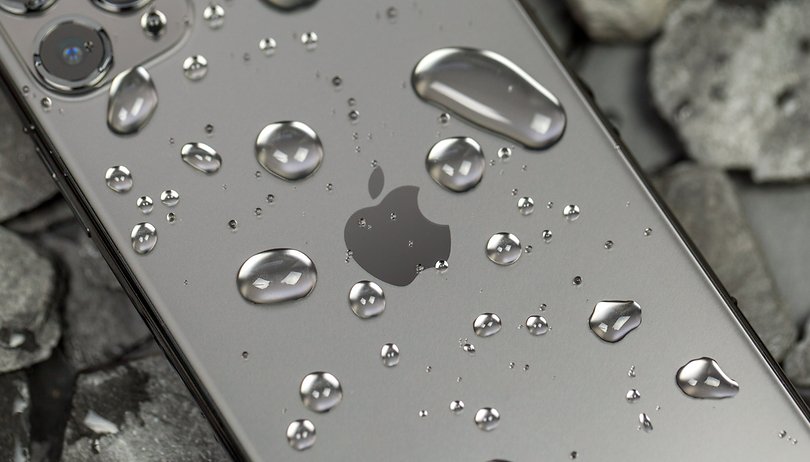

Whether its Android vs. Apple or Android vs. Android, tech fans love clashes and clan wars that rage in the comments sections of articles. In reality, we're all sheep who think we're shepherds. But how did we get here? And why is it dangerous?
When we talk about smartphones and fanboys, we immediately think of Apple fans. We all have in mind the image of the customer, blinded by a brand, ready to spend the night camping in the cold, in a Quechua tent in front of an Apple Store. All this to pay four times market value for an expensive iPhone.
Like two Tesla Model 3 drivers, who pass each other at a red light and greet each other with a well-deserved nod, proud to have succeeded in life as opposed to those who are nothing, the iPhone posse is proud to stand out from the crowd. "Think different", but all together, and all at the same time.
We're all someone's fanboy, fangirl or fanpeople...
- "Whereas on Android, you can get a lot more for less. What a bunch of sheep, these Apple fanboys! I'm a Mi Fan, I choose the quality-to-price ratio made by Xiaomi."
- "And I'm a member of the OnePlus Community with a capital C, I can read a spec sheet unlike the iSheep and I like Pete Lau's memes on Instagram."
- "Oh yeah, that's a nice OnePlus 8 Pro for 800 bucks! My Realme X50 Pro does better for 200 less. Well, I prefer Oppo."
- "But you haven't understood anything about life, all these brands belong to BBK. Whereas Sony, that's a real brand that has a history but nobody talks about it, especially not the media, who want to sink it!"
I'll stop this imaginary dialogue but it is inspired by real facts. One thing's for sure, we're all someone's fanboy, fangirl or fanpeople. And this tragic state of affairs is the result of very peculiar and oh so damaging mass marketing.
Tribal marketing: fertile ground for fanboyism
You can see this by watching a video posted last year by the excellent - and very critical of modern marketing - Belgian YouTuber, A Creative, where I came up with the idea for this article. Unfortunately, one of my colleagues from Frandroid, Omar Belkaab, had already published a paper at the time on the said video and I only saw it too late.
Except this article doesn't explain how tribal marketing is an illusion and how it hurts consumers. So here I am (almost?) saved from accusations of plagiarism that I will welcome in the comments. But back to the matter at hand.
According to the site "definitions-marketing.com", tribal marketing consists of using the social behaviors of certain groups of consumers (tribes) to promote a product or a service.
A tribe is characterized by common rituals, codes and behaviors. Codes can for example be dress codes or language codes.
Concretely, it is a matter of squeezing customers who might not have much in common into a "silo of interests", as defined by the American entrepreneur and former marketing director of Yahoo!, Seth Godin, in his TED talk: "The tribes we lead."
It is a phenomenon peculiar to the web and social networks, which allow connected sections of the population to find a common interest, a niche that transcends their socio-cultural, ethnic, geographical, linguistic, religious and even sex or gender differences.
Apple is obviously the embodiment of tribal marketing, which even has its own guru Steve Jobs, to make it a real "club". A technological and hermetic bubble, which locks itself into an increasingly uniform ecosystem of products and services, yet sold as being different from the rest. Technological hell is the others.
Divide into communities to rule better
But Apple is by no means a unique example. In the smartphone market, Android manufacturers all dream of having the same appeal as the Apple brand. That's undeniable.
But as Apple is the leader - its iPhone is still the best-selling smartphone in the world - so they have to take on the role of the challenger. Find a common enemy to unite customers, the tribe, against the dominant player who becomes a target to shoot down.
This is the positioning adopted by emerging Chinese manufacturers at the time, such as Xiaomi or OnePlus. With the Mi Fans or the OnePlus Community, the tribal inspiration is obvious. And the focus is on value for money, as opposed to the superfluous luxury touted by Apple, to seduce the die-hards who don't belong to the Apple clan.
So we address customers as friends, we tutor them on Twitter, we make memes or jokes mocking the Apple ruling class while presenting ourselves as the young and fun challenger. All this before moving to the dark side and "moving up the range" as OnePlus and Xiaomi did before finally being replaced by sub-brands of the same groups on the flagship-killing segment: Realme and Redmi.
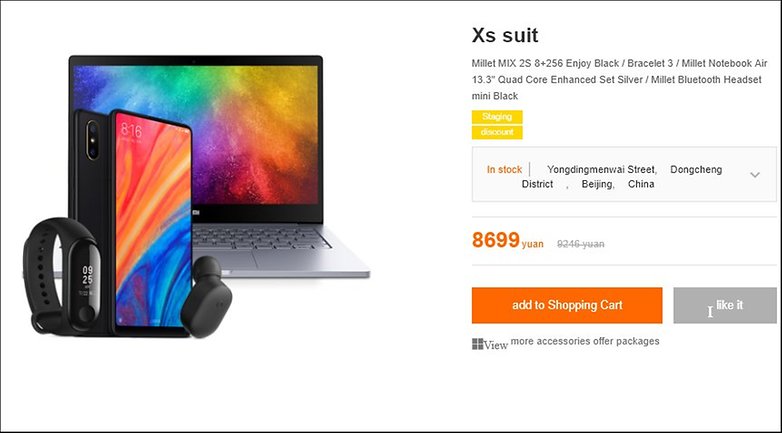
So there's a shift in scale that bites its tail, as I've described in the past with the death of the smartphone-flagship concept. But apart from technophiles who really know the market, few fanboys from OnePlus, Oppo, or Realme are aware that all these brands come from the same BBK Electronics Group, for example.
So we have a sprawling tech giant flooding the market with products under several brands, each with its own myth, its own values and its own tribe defending them. But it's like thinking that a football club or NBA team belongs to and represents its city, whereas a franchise can move from one day to the next without worrying about its loyal fans.
So you lobby for a brand without even getting paid for it. Free publicity from hardcore fans who are convinced that they are smarter than the masses. It's a treat. Even influencers get paid to say good things about a product!
My tribe, your tribe: brands are getting political
I told you about lobbying and vicious circles. We can see it with the multiplication of Android tribes that have already partially turned away from the common enemy (Apple) to fight each other.
Everyone preaches for his or her parish because he or she finds himself or herself in the values conveyed by a brand that, by definition, does not have any. We are talking about private companies, motivated by private interests, by profit. But because they are personified, and they are associated with morality, they become, in a way, the spokesperson for our community, our tribe.
We saw that with Twitter's clearly political stance at the height of the Black Lives Matter movement and the issue of racism in the United States. Twitter felt compelled by its users to take a stand in the public debate.
Other brands have even been asked to speak out publicly on the subject. Brands embody ideas, values. And their customers want to be able to relate to them. If Nike doesn't show its support for anti-racism, I can't remain a member of the Nike tribe.
So we move from the football team to the political party. And in the smartphone market, we have more or less the same phenomenon with Huawei, for example. Since Trump benched Huawei last May, it's become a marker of the Chine-American trade war.
And Huawei is clearly playing on it to continue to federate its customers who are reluctant to leave the tribe because they don't have access to Google services on their smartphones. So it plays the card of the small manufacturer, starting from nothing, who has to face the injustice of the American giant, jealous of its success.
Even we at AndroidPIT have sometimes defended Huawei, arguing that all is not lost and that the brand is on the right track to get back on its feet. Which is not false by the way. But it's a cognitive bias.
And one pretends to want to offer (actually sell) another world, a better world without Google, the evil giant and Trump's instrument. So much so that I still see comments under my review of the Huawei P40 that claim that having to install a web shortcut to Chrome or Gmail is the same as having Google applications natively on your smartphone!
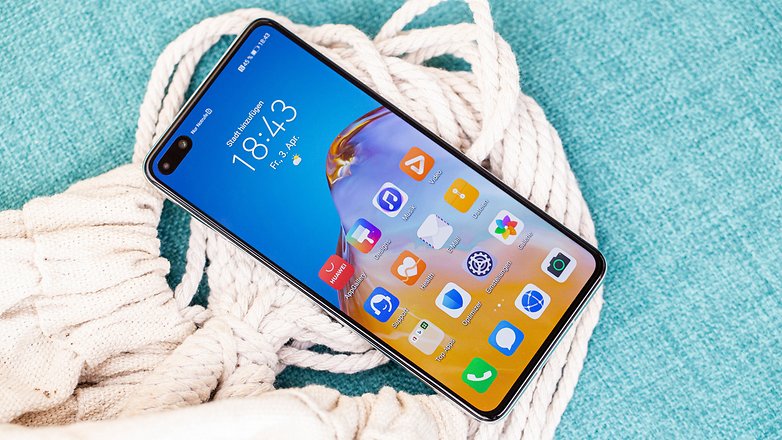
Well, we're not all fooled, are we?
So it's not all black and white in this story. I am the first to recognize that a brand that is close to its customers has positive aspects. It's nice to include your consumers in the launch of a product, to engage them via social networks, or even have them test products and take their feedback into account to improve the user experience.
And I'm also keenly aware that the tribal dimension is not the only factor in some consumers' attachment to a brand. A large proportion of technophiles are not fooled and know the difference. There are objective criteria, such as value for money, the user interface, hardware innovations, or the ecosystem that make people like one brand more than another.
But it's this notion of "loving" that bothers me and I find dangerous. You shouldn't have these feelings about a brand. Of course, a product can create emotions. You can attach sentimental value to it. You've heard about that in our article about the phones that have made the biggest impression on us. We are clearly in the mercy of emotion.
But a brand sometimes makes good products and also sometimes makes bad ones. And that's something you have to point out to them, not forgive them because you like them anyway.
The OnePlus 5 was my first Android smartphone and I loved the OnePlus 7T and made it my daily driver. However, when OnePlus pushed the pricing cap a little too far with the OnePlus 8 and OnePlus 8 Pro, I clearly disagreed.
I have no love for OnePlus. I get along well with the brand, I like some of their products more than other brands and I was saddened by the layoffs in Europe, but I don't like OnePlus the brand. If they start making bad smartphones, or if I find them too expensive, I'm not going to continue to defend them.
On the other hand, I don't hate a brand either, no matter what the Sony fanboys say under some of my items. I'm not talking about Sony because their smartphones aren't the most interesting ones right now. But when I was offered to test the Xperia 10 II (teaser), I gladly accepted, that's my job.
Similarly, I'm not particularly fond of the iPhone, but I recognize the strength of Apple and its ecosystem.
And I'm sure a lot of you guys have the same philosophy. You should not be too loyal to a brand, especially when it relies more on this loyalty than on the quality of its products to sell them to you. So let's stop bickering, because we're all going to end up cooing.






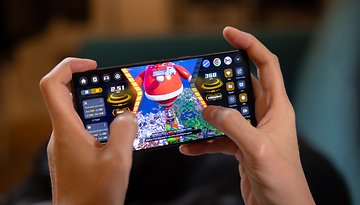








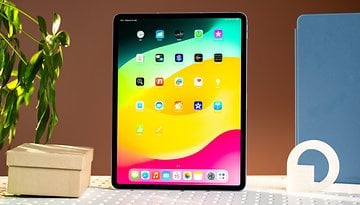


I have used various smartphones over the years from a Palm Centro, HTC Droid Incredible, iPhone, and a Google Pixel 2. My switch back to iPhone is based mostly on my family who use iPhones. The primary feature which drives our iPhone use is Airdrop. The transferring of photos and videos just works so seamlessly and fast. Two other features we use are FaceTime and iMessage for communication. Those are my use cases that have me on the platform I'm on. Everyone's needs and uses are different so using what works best is very much a personal decision. Just my two pfennig...
-
Admin
Jul 2, 2020 Link to commentI have a deep dislike for Apple products. Android gives one much more control and the ability to change and tweak as desired.
I'll switch among brands. I've used Palm, Sony, Nexus, Samsung, Huawei, Nvidia, Moto, Essential... My primary gripe about Apple is their philosophy of use is not compatible with my philosophy of use. This was true before handheld devices, so back before the Apple Newton, which I actually used professionally. Oddly enough this was actually after my time with 3Com when they owned Palm.
Basically I like fine grained control and Apple tends to obscure control in favor of lower powered simple UI. My use preferences tend to destabilize Apple products, leading my co-workers to surprise at how often I crashed them.
Apple works for lots of people. They frustrate me mightily.
Loyalty comes in many forms. I've had nothing but Moto G phones for the past 6 years - I've only just replaced a 3-year-old G5 with a G8, for security reasons - but I'm aware there are several other similarly-specced offerings. What keeps me loyal are Moto gestures and the knowledge that they won't mess with stock Android. Every time I have to use a Samsung I hate the bloated feel where nothing is where it's expected to be. I can't be sure that One-Plus or Xiaomi won't do the same so I stick with what I know. I'm sure many iPhone users are motivated by a similar unwillingness to explore something new when the old works pretty well for them.